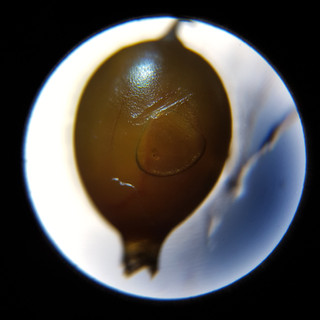Worms and Worm Castings at Home
- Martin Scholz
- Sep 23, 2016
- 3 min read
Featured are some photos and videos I took that may interest you. You'll see worm cocoon's or capsules that hold usually 1-3 baby worms. You'll also see a baby worm moving inside a capsule! Finally, you'll watch a single adult worm move. Note how its insides work.
So what is the big deal about composting worms? At home we compost about 95% of all compostable materials. Instead of going into the garbage, our food scraps are chopped into 1 inch length pieces and cycled back somewhere in our yard, either into the compost pile, the garden, given to the chickens or frozen and then fed to our compost worms. The idea is to keep all that energy in our yard for as long as possible.
Why keep any worms at all? The following reasons are quoted from my friend Dan Rollingson who owns and runs Earthly Matters, a composting worm based business. Check his operation out at http://www.earthlymatters.ca
On his website, Dan lists some basic benefits that composting worms provide:
What are the Benefits of Earthworm Castings?
• Enhance plant growth and vibrancy • Act as a natural fertilizer or plant food • Slow release of essential nutrients • Strengthen plant roots • Aid in moisture retention and aeration • Odorless and Non Toxic Safe to use on all indoor and outdoor plants
As you can see, keeping these worms at home to make your own castings provides a wonderful opportunity to add to the health of your plant growing endeavours and nutritional value of your food plants.
Contrary to common sentiment, worms are some of the cleanest creatures on the planet. The superior quality of their protein over most all the meats we eat, makes it a contender to add to our own diets -- if we can get past the idea of eating worms.
Composting worms are great because unlike earthworms or regular night crawlers in the yard, compost worms love to swarm in bunches together. They also like to eat green or fresh vegetable scraps not just brown dead materials. They thrive in shallow soils. They eat both brown and green materials. They reproduce very quickly and are easy to keep indoors. If you are interested in making extra cash, about 1/2 kilo of composting worms sell for around $70. Given that the worms can double in population every few months, you can actually make a fair amount of cash. One of my friends in a nearby city dedicated half of his double sized garage into a worm operation and made about $20,000 annually. That should interest some of you out there.
In a perfect world, composting worms will eat half their weight daily. But generally that has not been my experience. The key to feeding composting worms is to check the last food batch you gave them. When it is almost entirely turned into castings, give them another batch.
To keep fruit flies away, we bag our scraps in ziplock bags and freeze them at least overnight. When feeding, bury the food. We have no problems with fruit flies.
People ask what types of scraps to feed worms. There are loads of detailed lists on the net. If you keep to the following general guidelines for feeding composting worms you'll keep them happy and healthy:
1. No dairy products or meats
2. Breads - only sometimes
3. Fruits. But very citrusy fruits only occasionally and in small amounts (Eg. oranges, lemons and peelings etc.)
4. Stay away from strong items like garlic, onions and hot spices or spices with heavily pungent odours.
5. All vegetables
Common varieties of composting worms in Alberta are the Red Wrigglers and the ones we prefer and raise, European Night Crawlers, a night crawler species that are about the same size as Red Wrigglers. We prefer them because they self regulate their food consumption unlike red wrigglers that can be "fed to death". Also, they seem to be a bit tougher which helps in the cold Canadian climates.
If you are in Alberta and would like to purchase worms or worm castings for your yard health needs contact my friend Dan.


































Comments